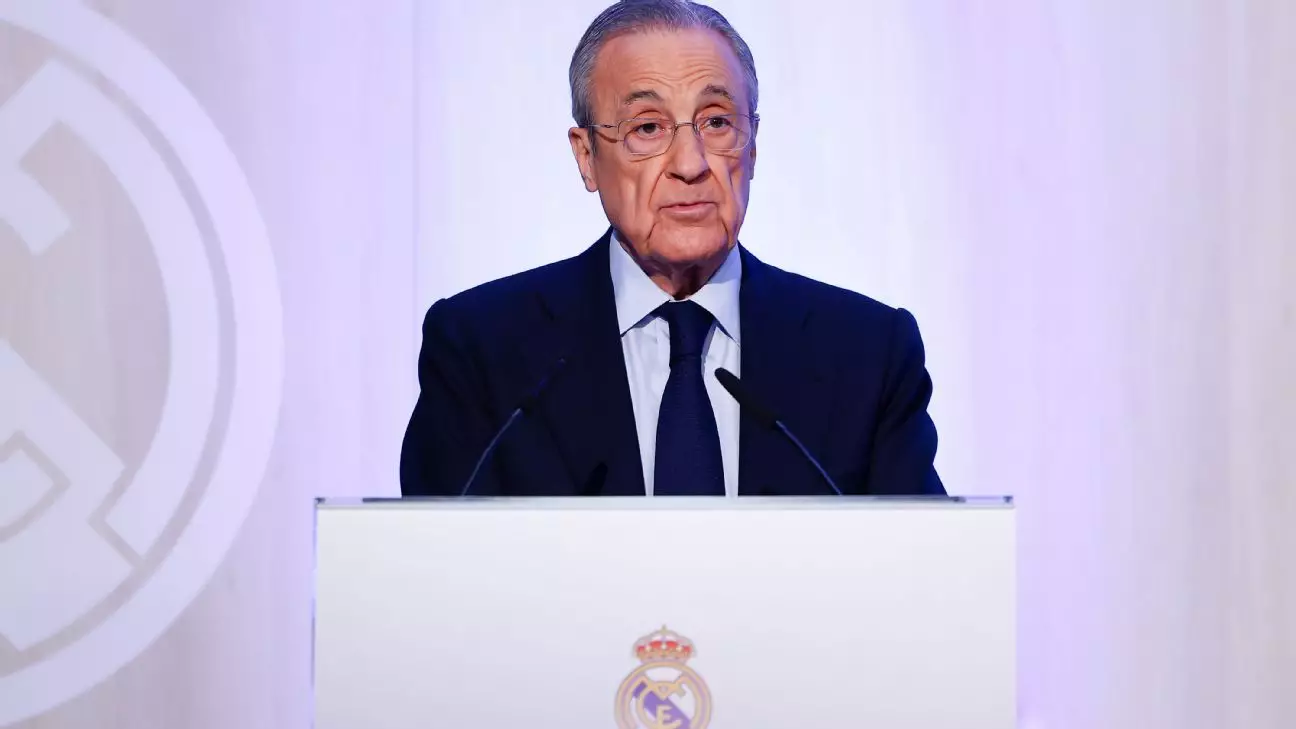Florentino Pérez has solidified his position as the uncontested leader of Real Madrid with his recent re-election as club president for another four-year term. This event didn’t come as a surprise; since returning to the presidency in 2009, Pérez has faced no competitive opposition during the electoral periods in 2013, 2017, and 2021. With his extensive influence in both Spanish and international football, his re-election continues a trajectory that has seen him shape not only Real Madrid but the landscape of football as a whole.
The eligibility criteria established by the club are notably strict, ensuring that only those with a deep-rooted commitment to Real Madrid can aspire to lead it. In 2012, club members voted to heighten the requirements, mandating candidates to be members for at least 20 years and present a substantial bank guarantee equivalent to 15% of the club’s budget. Such prerequisites effectively eliminate casual contenders and raise the bar for potential candidates, thus entrenching Pérez’s leadership by making it difficult for new entrants.
The question remains, however: does this stringent process enhance the club’s governance, or does it create a conservative cycle where only existing power players can navigate the political landscape? This dynamic could stifle innovation and fresh ideas, as potential reformers are systematically sidelined or discouraged from pursuing leadership roles.
Pérez’s early presidency from 2000 to 2006 marked a revolution known as the “Galáctico” era, where he brought in a number of football’s greatest talents, including Luis Figo, Zinedine Zidane, and David Beckham. His approach centered on star signings, which not only elevated the club’s profile but also drove substantial revenue through merchandising and global engagement. However, this focus on high-profile players initially backfired, leading to a 2006 resignation following a trophy-less three-year span, suggesting that an aggressive recruitment strategy must be matched with team cohesion and tactical discipline.
Upon reinstating the presidency in 2009, Pérez adopted a more balanced approach, marrying galáctico signings with a focus on developing home-grown talent and investing in the club’s future. Under his guidance, Real Madrid clinched numerous LaLiga titles and Champions League trophies, marking this phase as arguably the most successful in the club’s illustrious history. His adept management has crafted a well-rounded squad, while major triumphs have included the remarkable three consecutive Champions League titles from 2016 to 2018.
Despite his achievements, Pérez is not without controversy. His role in the contentious Super League project, recently rebranded as the Unify League, has cast him into direct conflict with key figures such as UEFA president Aleksander Ceferin and LaLiga president Javier Tebas. Pérez argues that profound changes are vital for the sustainability of football, but his views have met with fierce resistance. Detractors cite a conflict of interest and a perceived neglect of traditional structures in favor of a superstructure that benefits a select few elite clubs.
This tension illuminates broader challenges within football governance, particularly as the landscape evolves with financial pressures and shifting fan expectations. As Pérez continues to advocate for change, questions linger: how will his vision reconcile with the historic, community-oriented ethos of football? Dialogue and collaboration appear crucial to ensuring that all stakeholders feel represented as the sport navigates these turbulent waters.
As Pérez embarks on his next presidential term, he faces both promises and challenges. The success of his strategies will heavily depend on his ability to blend innovation with the club’s storied traditions. Managing the balance between commercial interests and sporting integrity will test his leadership in the coming years.
Moreover, Real Madrid has positioned itself favorably in competitions, reinforcing its stature as a powerhouse with recent trophies in both the UEFA Super Cup and FIFA Intercontinental Cup. However, any failure to advance further in notable tournaments like the Spanish Super Cup can lead to scrutiny and pressure from fans and stakeholders alike.
Pérez’s uninterrupted presidency showcases his significant impact on Real Madrid and global football. Yet, as he embarks on another term, the true measure of his legacy may well hinge on his capacity to address the evolving complexities of football while maintaining the identity that has made Real Madrid a pillar of the sport.

